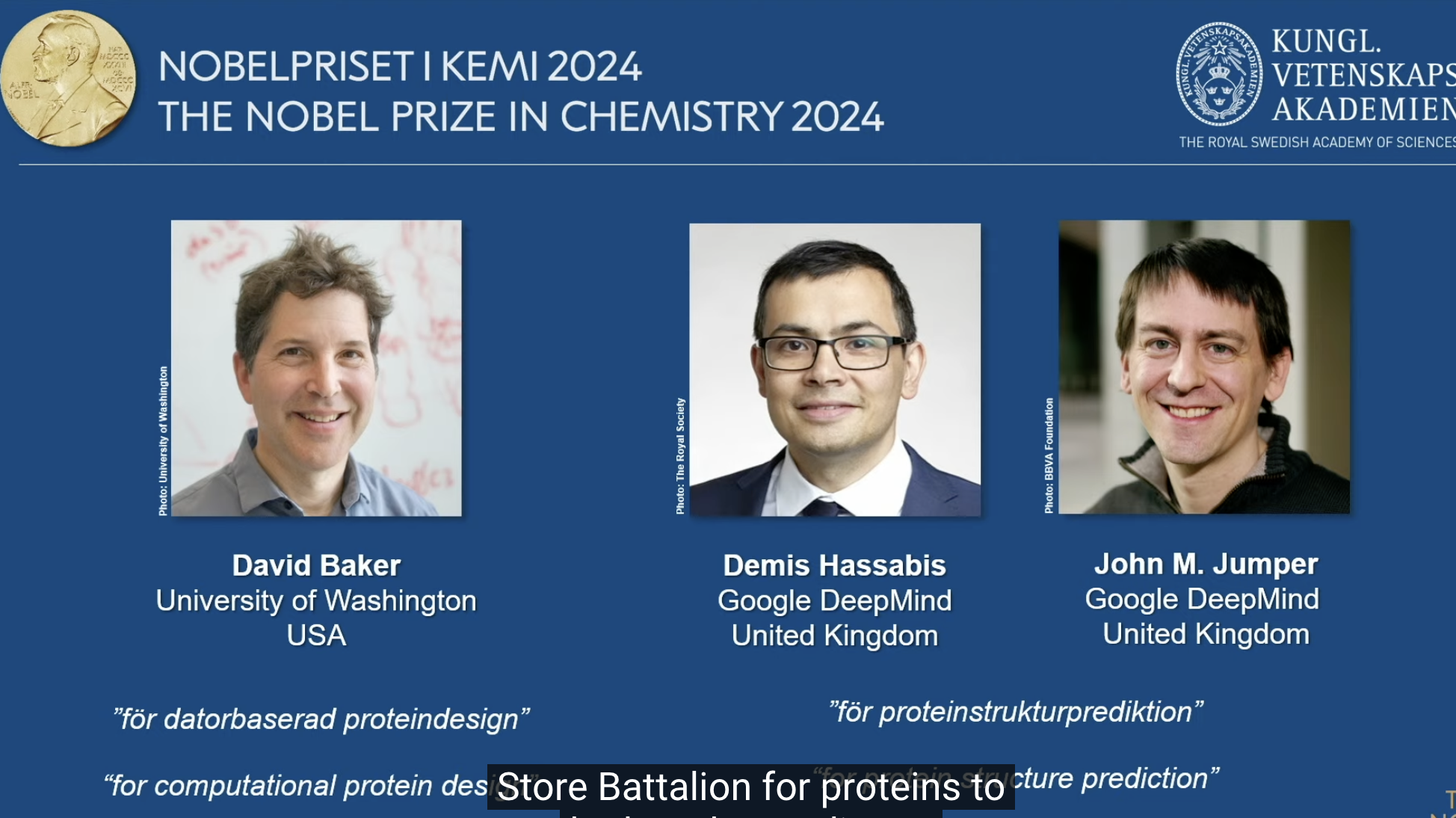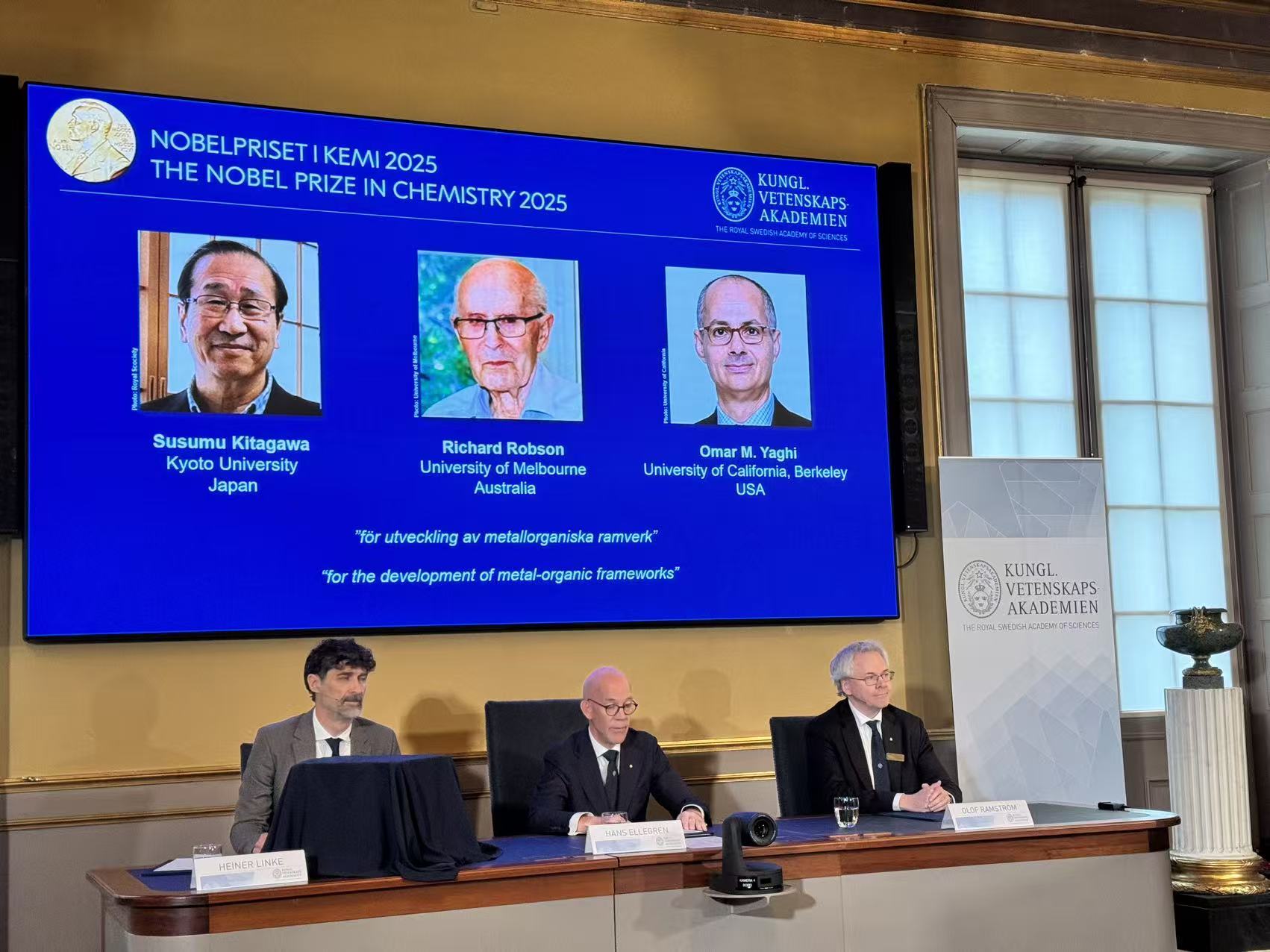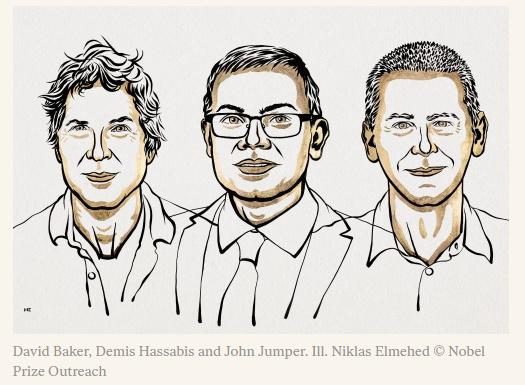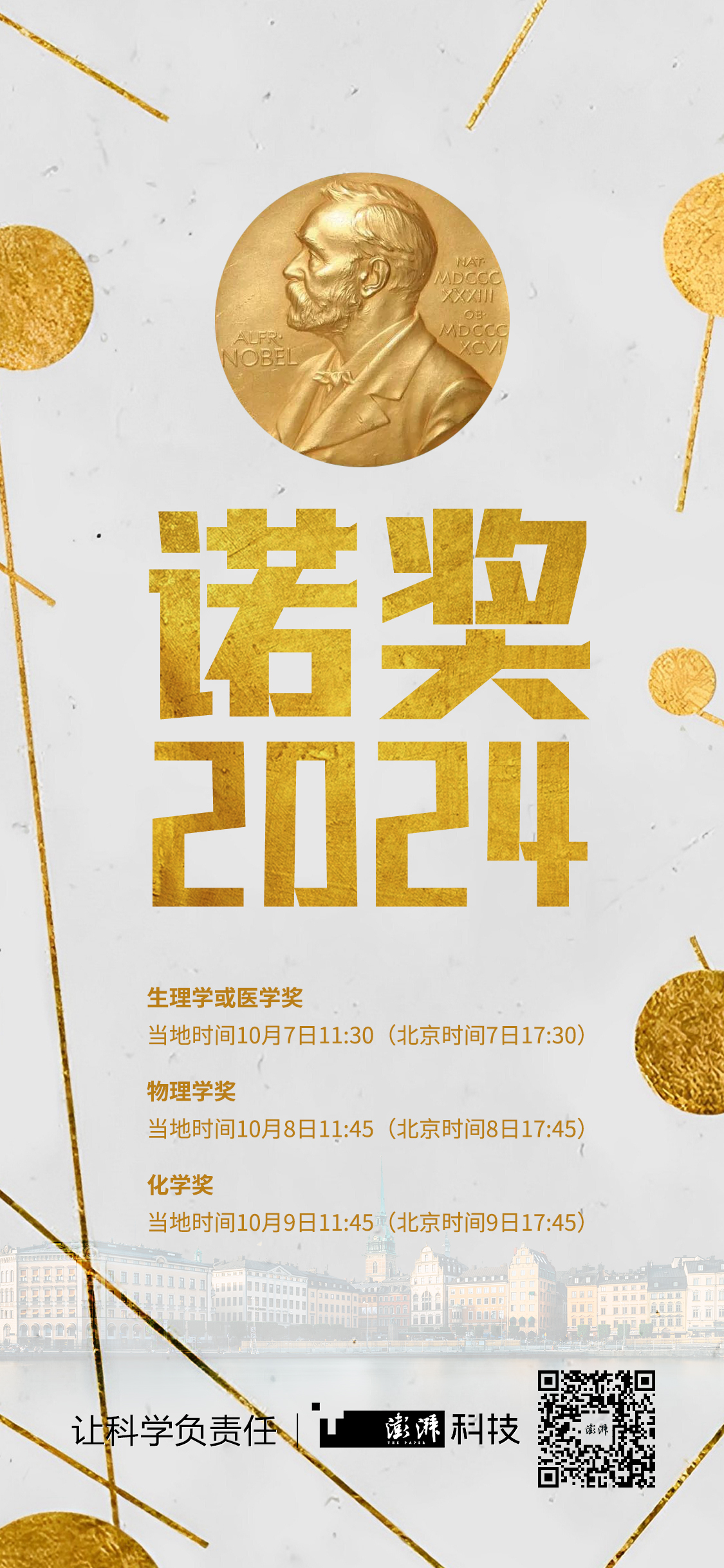

On October 9, local time, the Royal Swedish Academy of Sciences announced that the 2024 Nobel Prize in Chemistry has been awarded to three scientists. Half of the prize goes to David Baker from the University of Washington in the United States, in recognition of his contributions to computational protein design. The other half is jointly awarded to Demis Hassabis and John M. Jumper from the London-based artificial intelligence company Google DeepMind, for their work in protein structure prediction.

The Nobel Prize website states that this year's three laureates have cracked the code of protein's astonishing structure. The theme of the 2024 Nobel Prize in Chemistry is protein—the intricate chemical tools of life. Prize winner David Baker successfully accomplished what seemed nearly impossible, creating entirely new proteins. His co-winners, Demis Hassabis and John Jumper, developed an artificial intelligence model to tackle a problem that has persisted for 50 years: predicting the complex structure of proteins. These discoveries hold immense potential.
Previously, the Nobel Prize in Chemistry has been awarded 115 times to 194 winners. Due to British chemist Frederick Sanger and American chemist Barry Sharpless each receiving the prize twice, there have been a total of 192 individuals who have been awarded the Nobel Prize in Chemistry since 1901.
Yesterday, two pioneers in artificial intelligence were awarded the 2024 Nobel Prize in Physics. On October 8, local time, the Royal Swedish Academy of Sciences announced that John J. Hopfield from Princeton University in the United States and Geoffrey E. Hinton from the University of Toronto in Canada will share the 2024 Nobel Prize in Physics for their “foundational discoveries and inventions that enable machine learning with artificial neural networks.” The two laureates will equally share a prize of 11 million Swedish kronor (approximately 7.45 million RMB).

Previous Five Years of Nobel Prizes in Chemistry
The 2023 Nobel Prize in Chemistry was awarded to Moungi G. Bawendi, a professor at the Massachusetts Institute of Technology, Louis E. Brus, a professor at Columbia University, and Alexei Ekimov, former chief scientist at a nanocrystal technology company in the United States, recognizing their contributions to the discovery and synthesis of quantum dots.
The 2022 Nobel Prize in Chemistry was awarded to American chemist Carolyn R. Bertozzi, Danish chemist Morten Meldal, and American chemist K. Barry Sharpless, for their contributions to the fields of click chemistry and bioorthogonal chemistry research.
The 2021 Nobel Prize in Chemistry was awarded to German scientist Benjamin List and American scientist David MacMillan for their work on the development of asymmetric organic catalysis.
The 2020 Nobel Prize in Chemistry was awarded to French scientist Emmanuelle Charpentier and American scientist Jennifer A. Doudna, recognizing their contributions to the development of genome editing methods.
The 2019 Nobel Prize in Chemistry was awarded to American scientist John B. Goodenough, British chemist M. Stanley Whittingham, and Japanese scientist Akira Yoshino for their contributions to the field of lithium-ion batteries.


